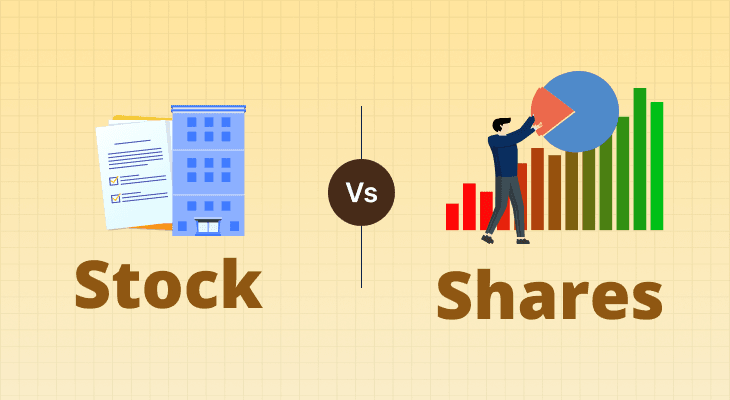Shares vs. Stocks and the Key Differences You Should Know

A share is defined as a unit of ownership in a company. When a person has some shares, he or she owns a part of the company that has issued shares. The shareholder is entitled to a share of the profit of the company, and dividends are paid to shareholders depending upon how the company performs. Issuance of shares is a means by which capital is raised; shares are then traded on stock exchanges, allowing investors to buy and sell shares.
On the other side, the “stock” covers a broader classification. While “share” refers to an ownership unit in a particular company, “stock” generally refers to shares that stockholders may have in one or more companies. Therefore, if someone says he has “stock,” it means he has equity in several companies. On the contrary, having “shares” often means having equity in a specific company.
Structural Differences Between Shares and Stocks
The main difference lies in the specificity of the terms. Shares mean the ownership of a specific company, while stocks mean the investor's total equity position in one or more companies. For example, an investor who has shares of a certain company shares 100 shares, and this is how he is referred to as a shareholder in that company. When he has shares in several companies, it is commonly stated that he owns stocks.
The Classification and Types
Shares may be classified into various categories like equity shares and preference shares. While equity shares represent real ownership of a company with voting rights, preference shares normally have no voting rights but may guarantee dividends at a fixed rate. Stocks cannot be classified in such a way, as they have a collective term and not a single instrument.
Market Participation and Demat Accounts
Joining the equity market requires the opening of a Demat account with a participant accredited by a depository. A demat account holds shares and securities in electronic form, dispelling the requirement for certificates in conventional paper format. It thus facilitates the buying, holding, and selling of shares efficiently. It is an essential requirement for any person seeking to invest or trade in shares.
Ownership and Rights
Another crucial aspect relevant to the shares vs. stock discussion contains legal and ownership implications. Holding shares in a company entitles the shareholder to rights such as voting in matters about the company, receiving dividends declared by the company, and inspecting certain statutory records. These rights are expressly stipulated under and protected by the laws and regulations related to securities and company law.
The rights in stocks are not defined in themselves as a generic term. The rights arise from the respective shareholdings in various companies. Thus, shares must be the focus of the legal documentation, especially when determining relevant shareholder entitlements or dealing with disputes.
Trading and Liquidity
Liquidity constitutes a big measure of interest to investors, being a function of the volume of trade in particular shares. Shares that are much traded tend to have greater liquidity, allowing their holders to enter and exit their positions with relative ease. Since stocks refer generally to a collection of different shareholdings, liquidity is usually examined on the individual share level.
Conclusion
Understanding the fundamental difference between shares and stocks becomes necessary for someone who wants to invest in the financial market. The shares define certain units of ownership in a company, while stocks are a broad term encompassing all equity holdings of different companies.
